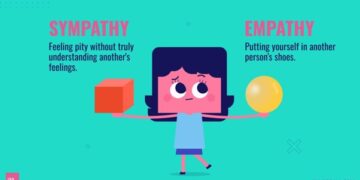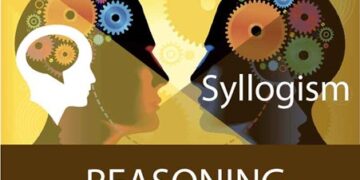What is Social Intelligence?
If you want to be successful, the ability to regulate your emotions by self is important. The world cares a lot for IQ (Intelligence Quotient), but of late corporate care a lot for EQ (Emotional Quotient) and SQ (Social quotient). SQ or SI (Social Intelligence) is largely developed from your experience, from what you learn. All the good and bad experiences of life prepares us to become socially intelligent. Social Intelligence is more commonly referred to as tact, common sense, sometimes even as street smart. Socially intelligent people come across as frank, without many inhibitions. They easily talk about themselves and are non-defensive. Therefore, are appreciated by co-workers, peers, their bosses everybody around them.
We all have emotions which drive us to take decisions, our ability to tackle our decisions make us successful or unsuccessful in life. We all live in society and whether we like or not, our self-regulation to manage our emotions and actions matters. We all are driven by our moods, feeling, and our actions are based on them. Don’t we like people who are cool and composed? Those who can cheer, those who lighten the atmosphere? We also come across people who behave negative, and are disruptive. Feeling come first and then we think; people who constantly react from an emotional state never wait long enough to allow their thoughts to override their emotions. People who can allow their emotions pass, respond to the feelings from a healthy state of mind tend to be logical. They use logic rather than simply reacting to feelings. Such people are labeled as mentally healthy, their actions reflect thoughtfulness. If they don’t have answers, they tell it frankly.
Social intelligence was coined by E.L. Thorndike (1920). He divided intelligence into three facets: the ability to understand and manage ideas (abstract intelligence), concrete objects (mechanical intelligence), and people (social intelligence). His definition of social intelligence was “By social intelligence is meant the ability to understand and manage men and women, boys and girls — to act wisely in human relations” Similarly, Moss and Hunt (1927) defined social intelligence as the “ability to get along with others.” Vernon (1933), provided the most wide-ranging definition of social intelligence as the person’s “ability to get along with people in general, social technique or ease in society, knowledge of social matters, susceptibility to stimuli from other members of a group, as well as insight into the temporary moods or underlying personality traits of strangers”
Some of the important elements of social intelligence are:
Confidence in talking: In a party, or gathering you can easily spot a person with high score of SI talking to others with ease. Such people have verbal fluency and command of their conversation because of their composed state of mind. They are expressive and can carry discussions without boring others. Such people carry on their social roles easily. For example if the person is a host, he/she will make the guests so relaxed and at ease. If the person is a guest, he makes the host very comfortable, as though the he is a part and parcel of the household. Socially intelligent individuals learn to play various social roles with ease. A person with good SI, conducts interviews also very well, without making the candidate nervous, he/she make the candidate comfortable. If it’s a doctor, he makes his patients comfortable, if it’s a judge, he keeps his courtroom good-humored place. If it’s a teacher his classroom has full attendance. So, the people with high SI, know how to play their roles. As a result, they are seen as socially sophisticated people.
Good listeners: Socially intelligent persons are great listeners. As a result, people who interact with them feel more ‘connected’ with them. They have better understanding of people. They are good observers too. They have a perfect reading of other’s behaviors Understanding emotions is part of social intelligence both. Remember, both SI and EI are inter connected. And, people who are especially skilled are high on both.
Good management skills: People with high SI, are good managers. They are good implementers too. They hold risk taking ability and are fast decision makers. They easily manage as well as control things. Even as they control things, they don’t make it obvious to others. This is the most complex element of social intelligence.
How do we develop social intelligence? It takes efforts to build social intelligence. By paying attention to world around, one learns manners, etiquettes and governance. Social intelligence is in a way complex socialization; such as we all experience politics, romance, family relationships, disagreements, tiffs, teamwork, tradeoffs, clichéd business relationships and philanthropy. Man is a social animal. Most of us go through highs and lows from our childhood. Our experiences in life develops the size of our brain. As we develop in life, our brain provides ability to interact with others in social circumstances. By and large, people develop themselves by observing others. Each one of us have role models, we develop by replicating them. The social intelligence quotient (SQ) is a statistical notion, similar to the ‘standard score’ approach used in IQ Test, with a mean of 100. Scores of 140 or above are considered to be high on score. SQ has until recently been measured by techniques such as question and answer sessions. These sessions assess the person’s rational abilities.
Audrey Hepburn – the greatest actress of all times, Oprah Winfrey – the famous talk show anchor, Barack Obama, Warren Buffet, Nelson Mandela, Indira Nooyi, are some names of people who are considered as social charmers. Friends, good leadership requires a combination of self-regulation and social intelligence. Self-regulation refers to how we handle ourselves; and social intelligence is handling others tactfully.














































